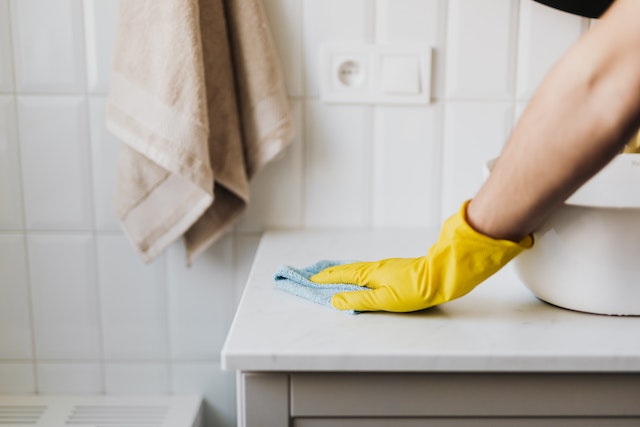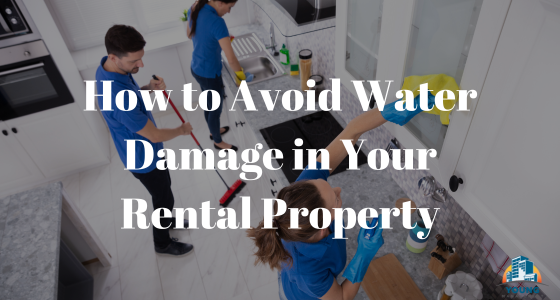Water damage is one of the most common and costly issues that landlords face when managing rental properties.
From burst pipes to leaky roofs, even minor water problems can lead to extensive property damage, high repair costs, and unhappy tenants.
For landlords, preventing water damage is not only about protecting the property but also about keeping tenants happy, avoiding liability, and attracting great tenants. Keep reading to learn more!
Regular Property Inspections
Regular inspections are one of the most effective ways to prevent water damage in rental properties. Water leaks often start small and go unnoticed until they become significant maintenance issues.
By conducting periodic inspections, landlords can catch these problems early and prevent more extensive damage. Here are some areas to focus on during inspections:
- Roof: Check for missing or damaged shingles, clogged gutters, and signs of water pooling. A compromised roof is a leading cause of water leaks.
- Windows and Doors: Ensure that seals are intact to prevent water from seeping through during storms.
- Plumbing: Inspect pipes under sinks, behind appliances, and in basements or crawl spaces. Look for signs of leaks or corrosion, especially around joints.
- Bathrooms: Inspect for grout and caulking that may need replacing around tubs, showers, and sinks to prevent leaks.

Scheduling inspections at least twice a year and after significant weather events can help landlords stay ahead of potential water damage issues.
Roof Maintenance
The roof is a property’s first line of defense against rain and snow, making its upkeep crucial to avoiding water damage. Regular property maintenance ensures that small issues don’t turn into major leaks. Here’s what landlords should focus on:
- Annual Roof Inspections: Have the roof inspected by a professional at least once a year. This is especially important if the roof is older or the property is located in an area with extreme weather conditions.
- Clear Gutters and Downspouts: Blocked gutters can cause water to back up and damage the roof, so clean them regularly.
Addressing roofing issues proactively can prevent water from leaking into the property and causing interior damage, mold growth, or structural issues.
Prevent Frozen Pipes
In colder climates, frozen pipes are a common cause of water damage. When water in the pipes freezes, it expands and can cause the pipes to burst, leading to significant water damage. Landlords should take steps to protect their properties during the winter months.

Here are some key winter precautions:
- Insulate Pipes: Wrap pipes in unheated areas, such as basements, attics, and garages, with pipe insulation to prevent them from freezing.
- Leave the Heat On: During cold weather, make sure tenants know to leave the heat on even when they are away. The thermostat should be set to at least 55°F to prevent pipes from freezing.
- Drip Faucets: During extreme cold, have tenants drip faucets to keep water moving through the pipes, which can help prevent freezing.
By preparing for winter conditions, landlords can reduce the risk of burst pipes and water damage.
Install Water Detection Devices
Water leaks can go unnoticed for long periods, especially in areas that are rarely used, such as basements or utility rooms.
Installing water detection devices can help landlords identify leaks before they cause major damage. These devices trigger an alarm when they detect moisture, allowing for quick action.
Consider placing water detectors in areas such as:
- Near water heaters
- Under sinks
- Around washing machines
- In basements and crawl spaces
Early detection is key to minimizing the damage caused by leaks, and these affordable devices can offer peace of mind for landlords.

Tenant Education
Tenants play a crucial role in preventing water damage. Educating them on how to spot early signs of leaks and what to do in the event of a water emergency is essential. Landlords should provide tenants with clear instructions on:
- Reporting leaks or signs of water damage immediately
- What to do if a pipe bursts or a leak occurs (e.g., shutting off the water supply)
- Avoiding actions that could cause water damage, such as overloading washing machines or flushing inappropriate items down toilets
A collaborative approach between landlords and tenants can significantly reduce the risk of water damage.
Work with a Professional Property Management Company
Preventing water damage is not always easy, especially for landlords managing multiple properties or those living far from their rental investments. Working with a professional property management company can help mitigate these risks and ensure that properties are well-maintained.
Here are the benefits of partnering with a property management company:
- Regular Maintenance and Inspections: Property managers can schedule and oversee routine inspections, ensuring that potential water damage issues are identified and addressed early.
- Expertise in Property Care: Property management companies have the expertise to handle repairs and maintenance efficiently, including water-related issues. They often work with trusted contractors and can get repairs done quickly, minimizing damage.
- Emergency Response: In the event of a water emergency, such as a burst pipe, property managers can respond immediately. They are equipped to handle tenant communication, shut off water, and arrange for repairs.
- Tenant Management: Property managers can educate tenants on water damage prevention and ensure they follow best practices, further reducing the risk of water-related problems.
Partnering with a professional property management company provides landlords with peace of mind, knowing that their rental property is being cared for by experienced professionals.
Conclusion
Water damage can be a costly and stressful issue for landlords, but with proactive measures and the right support, it can be largely avoided.
Regular inspections, proper maintenance, and tenant education are key to preventing water damage.
Plus, partnering with a professional property management company offers landlords the expertise and resources needed to keep their properties in top condition and safeguard them from the costly impacts of water damage. If you need assistance, contact us at Young Management.

